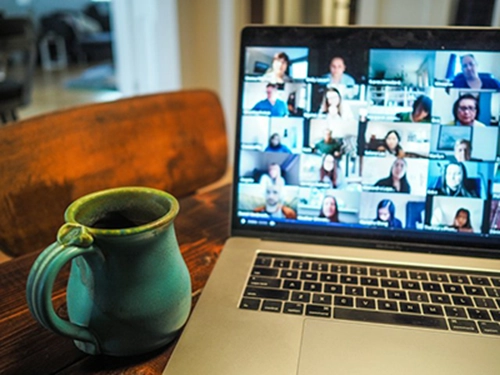Accessible Campus Event Guidelines
Events are a great way to build community and professional development. At Utah State University, we are committed to providing an inclusive environment where everyone feels welcome. In addition, the University is obligated by federal and state laws to ensure program accessibility to persons with disabilities. When planning an event, there are some basic steps that you can take to make sure the event is accessible to everyone.
Event planners have the primary responsibility to ensure accessibility for any event sponsored by the University. This includes conferences, webinars, meetings, town halls, artistic performances, or networking opportunities. In addition to the information below, there are campus resources available to help you plan for accessibility and ensure participants with disabilities receive necessary accommodations to participate fully in your event.
Preparing for Accessibility
When planning an event, it is essential that everyone on the planning committee consider accessibility from the very beginning. Be sure to prepare for experiences that will be accessible to everyone. We recommend that you assign someone specific to lead those efforts and coordinate any accommodations. That person should consider barriers that may affect those with a wide range of disabilities (e.g., vision, hearing, and mobility).
Accessibility Budget
When budgeting for an event, do not forget to list accommodations for participants with disabilities as a budget item. For instance, you may need a sign language interpreter, live captioning, assistive listening devices, or media in an alternate format (e.g., handouts in large print or Braille). The Disability Resource Center can help you arrange for these services, but the event host will be responsible for covering the cost of services.
Share an Accommodation Statement
Let participants know up front that accommodations can be made by including an accommodation statement on all of your communication (websites, flyers, e-mail, advertisements, etc.) If your event requires registration, include this information as part of the registration process. Below are some sample accommodation statements.
Full Statement
Utah State University welcomes persons with disabilities to participate in its programs and activities. To ask questions about accessibility or request accommodations, please contact (name) at (include phone and an email address so that someone with a hearing or verbal disability can make inquiries). At least two weeks' advance notice will help us to provide any necessary accommodations.
Abbreviated Statement
To ask questions about accessibility or request accommodations, please contact (name) at (include phone and an email address so that someone with a hearing or verbal disability can make inquiries).
To save time and reduce the number of requests you receive, explain up front any accommodations you plan to provide proactively such as captions on videos. Make sure someone is actively monitoring the contact methods provided to ensure any accommodation requests are addressed. Contact participants to let them know that their requests have been received. If you are unsure how to provide a requested accommodation, please contact the Disability Resource Center for assistance. Accommodation requests may not be denied or left unfulfilled without speaking with the Disability Resource Center for guidance.
Accessible Presentation Materials
As the event planner, there are many things you can do to make sure that presentation materials are accessible to participants with disabilities:
- Let presenters know that their presentations should be accessible and share basic information on PowerPoint accessibility or other accessible document formats.
- You may even consider providing them with an accessible PowerPoint template with your event branding.
- Gather presentations ahead of time so that you can provide them to attendees who require an electronic version.
- Any videos used during the presentation should be captioned in advance.
- Remind presenters to describe any relevant images or graphs when presenting.
- If attendees request alternative format versions (large print, audio, Braille, etc.) of any hard copy materials, please contact the Disability Resource Center for assistance.
General Best Practices
There following items are best practice for any event and also make the event more inclusive for participants with disabilities:
- Provide as much information as possible well in advance of the event including detailed schedules, maps, dress codes, food options, and event accessibility.
- Plan frequent, regular breaks and ensure participants know they are able to take breaks as needed.
- Use readable name tags for everyone.
- Where possible, allow registration cancellations and refunds of any event costs.
In addition to these general guidelines, there are some additional things to consider depending on whether your event is online, in-person, or both:
Additional Resources
- Making Events Accessible: Checklist for Meetings, Conferences, Training, and Presentations That Are Remote/Virtual, In-Person, or Hybrid from the Web Accessibility Initiative.
- A Planning Guide for Making Temporary Events Accessible to People With Disabilities from the ADA National Network.
- An Event Professional’s Guide to Neuro-inclusive Events from the Neu Project.



